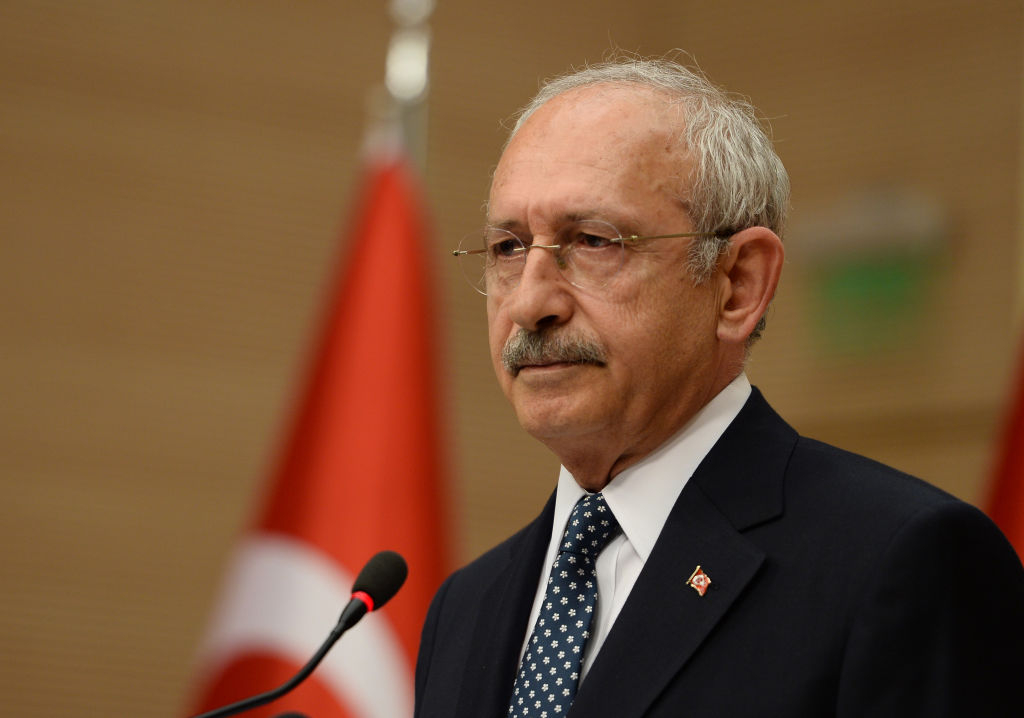|
In this mailing:
- Burak Bekdil: Turkey's New
Violent Political Culture
- Maria Polizoidou: Greece: Is the
Left-Wing Government Interfering in the Electoral Process?
by Burak Bekdil • June 11, 2019
at 5:00 am
- At the heart of the
matter is a culture that programs most less-educated masses
(and in Turkey average schooling is 6.5 years) into a)
converting the "other" and, if that is not possible,
b) physically hurting the "other." A deep societal
polarization since President Recep Tayyip Erdoğan's Justice
and Development Party (AKP) came to power in 2002 has widened
to frightening levels.
- After opposition
leader Kemal Kılıçdaroğlu was taken to a safehouse, members of
the mob surrounded it and chanted, "Let's burn down the
house!"
- Apparently each
unpunished case of political violence committed on behalf of
the dominant state ideology (Islamism) and its sacrosanct
leader (Erdoğan) encourages the next. In May, a journalist
critical of Erdoğan's government and its nationalist allies
was hospitalized after being attacked outside his home.

In a most
spectacular show of violence, fans of Turkey's President Recep
Tayyip Erdoğan in April nearly lynched Kemal Kılıçdaroğlu, leader
of the main opposition Republican People's Party (CHP). Pictured:
Kemal Kılıçdaroğlu. (Photo by Erhan Ortac/Getty Images)
In most civilized countries, citizens go to the
ballot box on election day -- be it parliamentary, presidential or
municipal -- cast their votes, go home to watch news reporting the
results and go to work the next day, some happy, some disappointed,
to live in peace until the elections. Not in Turkey, where any
political race looks more like warfare than simple democratic
competition.
One reason is the dominance of identity politics in
the country that has its roots deep in the 1950s, when Turkey
evolved into multi-party politics. The fighting between
"us" and "them" goes on since then. At the
heart of the matter is a culture that programs most less-educated
masses (and in Turkey average schooling is 6.5 years) into a)
converting the "other" and, if that is not possible, b)
physically hurting the "other." A deep societal
polarization since President Recep Tayyip Erdoğan's Justice and
Development Party (AKP) came to power in 2002 has widened to
frightening levels.
by Maria Polizoidou • June 11,
2019 at 4:00 am
- The most damning
testimony of electoral fraud, however, came from Dimitris
Mavros, managing director of the MRB polling company. In a
radio interview on June 2, Mavros said that he had been under
extreme pressure from Prime Minister Alexis Tsipras to
manipulate the polls published by his firm....
- On May 18, LA.O.S.
Nationalist party leader Giorgos Karatzaferis also protested
the government's ostensible interference in the elections.
Karatzaferis said that the vote could be slanted leftward by
the swift granting of Greek citizenship to thousands of
immigrants.
- The crucial question
now surrounds the extent to which Greek voters heading to the
polls on July 7 to elect their next government can trust that
their ballots will be counted -- and reported -- fairly.
(Image
source: iStock)
The local elections held in Greece on May 26 cast
doubt on the integrity of the powers-that-be in Athens, and raise
questions about how fair the upcoming national elections, scheduled
for July 7, will be.
During the lead-up to the local elections, suspicion
had been rampant that the left-wing Syriza-led government was going
to try to manipulate the outcome.
As Lefteris Avgenakis -- secretary of the opposition
New Democracy party -- told SKAI TV on May 16:
"There is the fear and the feeling... [and]
information that some [members of] Syriza are determined... to
distort the election results... We are telling [the Greek public]
that New Democracy will be there with electoral representatives to
ensure that their votes will be those counted at the ballot
box."
|































No comments:
Post a Comment